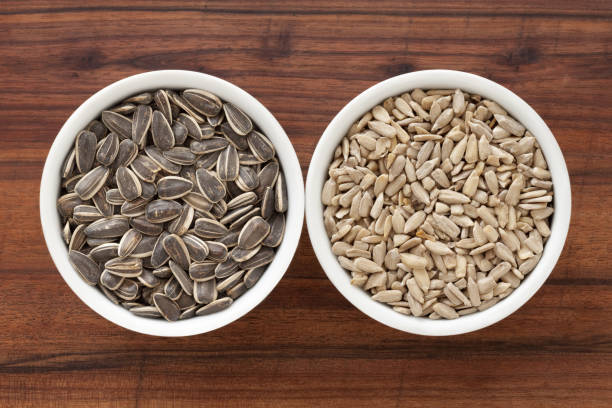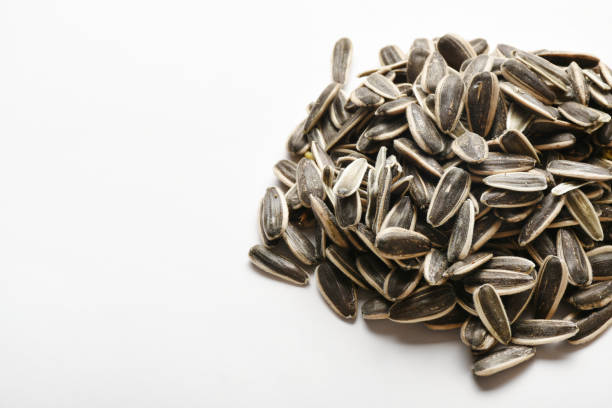Sunflower seeds are a popular snack food that is enjoyed by many people around the world. They are also commonly used as an ingredient in various recipes, such as bread, granola, and trail mix. Sunflower seeds are a great source of essential nutrients, and are particularly high in calories. In this article, we will explore how many calories are in sunflower seeds and the nutritional benefits that they offer.
One ounce (28 grams) of sunflower seeds contains about 164 calories. This means that a one cup serving (128 grams) of sunflower seeds contains about 656 calories. It’s important to note that this calorie count can vary slightly based on the specific brand or type of sunflower seeds. Additionally, the calorie count will be different if you are eating roasted or salted sunflower seeds than if you are eating raw sunflower seeds.
The majority of the calories in sunflower seeds come from fat, with the majority of that fat being unsaturated. Unsaturated fats, particularly polyunsaturated fats, have been linked to a number of health benefits, including a reduced risk of heart disease. Sunflower seeds are also a good source of vitamin E, an antioxidant that can help protect the body from damage caused by free radicals, as well as magnesium, which is important for maintaining healthy bones, muscles, and nerves.
Sunflower seeds also contain a variety of other vitamins and minerals, including vitamin B6, which is important for metabolism, and zinc, which is important for a strong immune system. They are also a good source of dietary fiber, which can help with digestion and weight management.
Despite being high in calories, sunflower seeds are a good source of several essential nutrients. For example, sunflower seeds are a rich source of vitamin E, which is an important antioxidant that helps to protect the body against harmful free radicals. They also contain minerals like copper, manganese and magnesium. A 1 oz serving of sunflower seeds provides 6.6mg of zinc, 47% of the daily recommended intake
Sunflower seeds are also a good source of healthy fats, including polyunsaturated and monounsaturated fats. These fats are important for heart health and can help to lower cholesterol levels. Additionally, sunflower seeds contain a good amount of protein, about 6g per ounce, which can help to keep you feeling full and satisfied.
Sunflower seeds are also a rich source of several other essential nutrients, such as folate, thiamin, and selenium. They also contain a small amount of vitamin B6, which is essential for the metabolism of amino acids and the production of neurotransmitters.
You can enjoy sunflower seeds as a snack on their own, or add them to your favorite recipes. They can be used in a variety of dishes, including salads, yogurt, oatmeal, and baked goods. They can also be added to granola bars, trail mix, and other snack mixes for an added boost of nutrition.
In addition to the nutritional benefits, sunflower seeds also offer other potential health benefits. For example, research has shown that consuming sunflower seeds may help to lower blood pressure and reduce the risk of heart disease. They are also suggested to be helpful for weight management, as the high protein and healthy fats in sunflower seeds can help to keep you feeling full and satisfied for longer periods of time.
In conclusion, sunflower seeds are a calorie-dense food that can be a great addition to your diet due to the wide range of nutrients they provide. They are a good source of healthy fats, protein, and various vitamins and minerals, and they may also offer other health benefits, such as a lower risk of heart disease and weight management. Keep in mind that calorie intake should be controlled and balance with other foods in your diet, a moderate portion of sunflower seeds can be a great snack option.

 Home
Home Health
Health Diet & Nutrition
Diet & Nutrition Living Well
Living Well More
More












